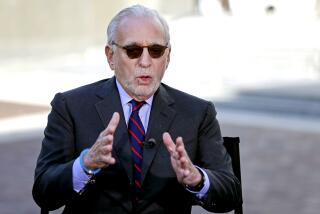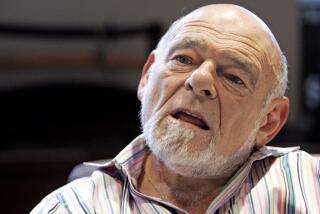Zell Tries to Reassure Equity Investors
Chicago billionaire Sam Zell built a fortune acquiring properties from financially distressed sellers and turning them around. Now, the self-described “grave dancer” is in a tough spot of his own.
His Equity Office Properties Trust is the worst performer in the 21-member Bloomberg Office REIT Index this year. A dollar invested in the largest office building owner at the start of the year has shrunk 4.1%, while the index has returned 3.7%.
The lagging performance follows an $11.8-billion West Coast expansion in 2000 and 2001, as the office-property market was peaking. Equity Office has since lost a key tenant at its largest development, Zell’s chief executive quit this month and the chief financial officer’s spot has gone unfilled for six months.
Zell, the company’s 60-year-old chairman, hosted a conference call Monday to discuss first-quarter earnings and tried to reassure investors he can turn around a bad situation. The priority, he said, is to insulate the company from further declines in its markets and hire a chief executive whose skills lie more in managing businesses than acquiring property.
“To his credit, Zell clearly laid out the company’s objectives, but those objectives are formidable hurdles,” said Joe Smith, who helps manage more than $1 billion, including shares of Equity Office, at Clarion CRA Securities.
Equity Office’s shares fell 4 cents to $28.38 on the New York Stock Exchange.
The company’s funds from operations--a measure of cash flow used by REITs, real estate investment trusts--rose to $410.6 million, or 87 cents a share, from $272.6million, or 78 cents, a year earlier. But the latest results include a fee of $40million, or 8 cents a share, paid by Sun Microsystems Inc. for not moving into a building at Equity Office’s $223-million Foundry Square project in San Francisco.
“I was out there on the West Coast this month, and what I saw was worse than I expected,” said James Sullivan, a REIT analyst at Prudential Financial who cut his rating on Equity Office this month to “hold” from “buy.” “High-tech markets appear to be facing a protracted period of high vacancy.”
Zell has a lot at stake. He controls 4.5% of Equity Office, a holding valued at about $378 million. Although he draws no salary, his stake collects about $26.5 million a year in dividends.
Chicago-based Equity Office owns 768 buildings across the U.S., including New York’s Worldwide Plaza, the tower that houses Chicago’s Mercantile Exchange, and Cal Plaza in Los Angeles. It owns more than 125 million square feet of office space, more than twice as much as its nearest competitor, Toronto-based TrizecHahn Corp., whose stockholders this month approved its conversion to a U.S.-based REIT.
Zell built his reputation buying real estate in the late 1980s and early 1990s, when foreclosures were rising. The bet turned out right when the real estate market recovered faster than expected.
The executive, who leads a group of friends who refer to themselves as “Zell’s Angels” on motorcycle junkets around the world, strayed from his bottom-fishing investment style last year. Equity Office bought developer Ned Spieker’s Menlo Park, Calif.-based Spieker Properties for $7.2 billion.
The purchase, about a year after Zell paid $4.6 billion for another REIT with a West Coast focus, Cornerstone Properties Inc., came when vacancy rates were at all-time lows of less than 3% in such places as San Francisco, San Jose and Seattle.
Since the purchase, vacancy rates in San Francisco, Boston, San Jose and Seattle, which account for 45% of Equity Office’s net operating income, have risen to more than 14%, and rents are down more than 20%, according to Torto Wheaton Research, a real-estate research firm.
Making Zell’s job tougher is the resignation April 19 of Timothy Callahan, who had been president and chief executive of Equity Office since it went public in 1997. The company has been searching for a chief financial officer for six months after promoting Richard Kincaid to chief operating officer. A chief executive may be named by November, Zell said Monday.






